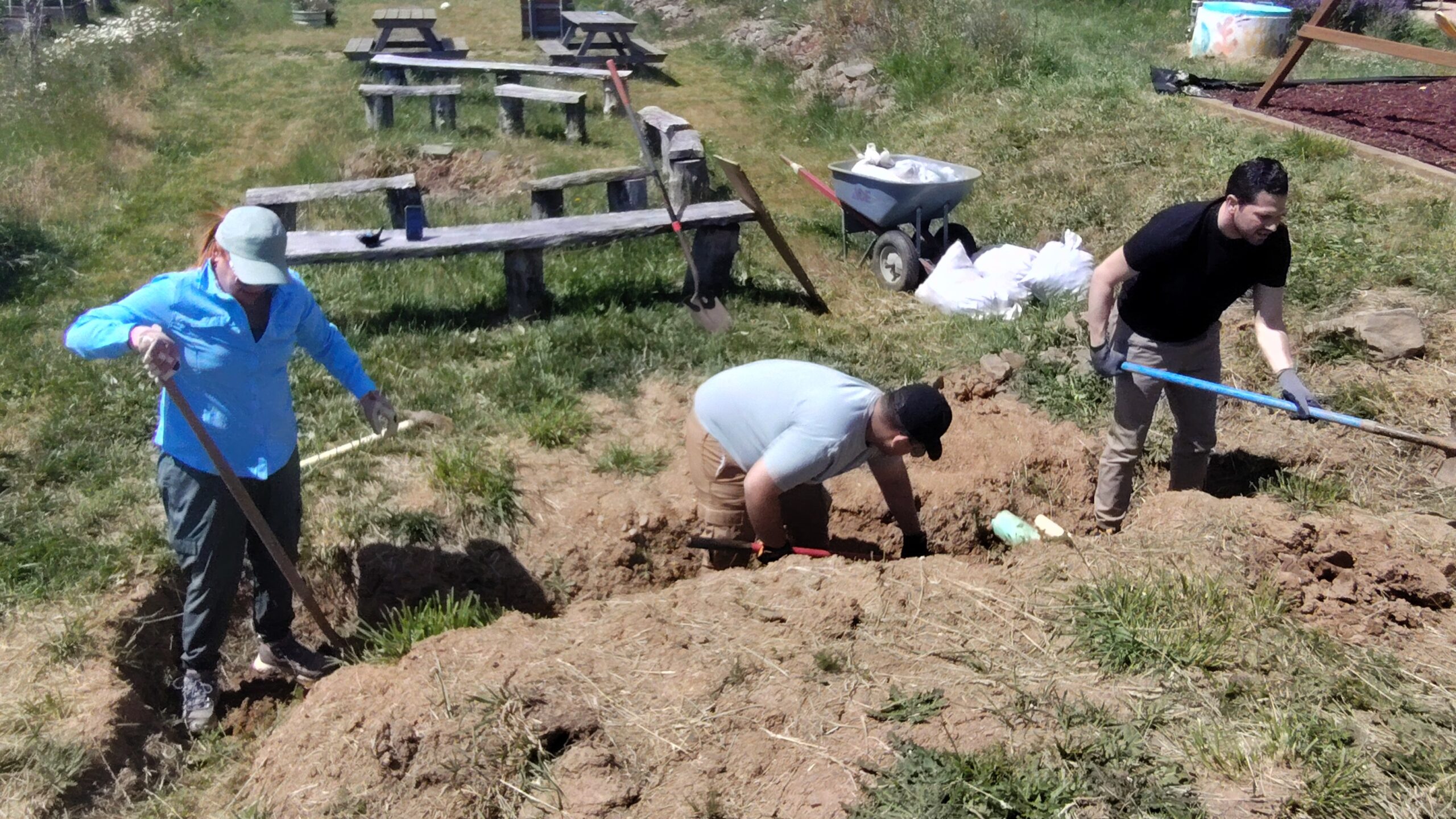Living what we learn: A cultural journey of healing, solidarity, and leadership
VALLEY FORGE, PA (08/11/2025)—“Currently, 26 percent of Puerto Rico churches are without pastors,” noted Rev. Abigail Medina Betancourt, national coordinator of Intercultural Engagement at American Baptist Home Mission Societies (ABHMS) and associate program director of Creciendo Juntos, an ABHMS program that seeks to build capacity for Latino ministries. Building Bridges, a three-year collaborative program developed by ABHMS, Iglesias Bautistas de Puerto Rico (IBPR, Baptist Churches of Puerto Rico), and Unión de Jóvenes Bautistas de Puerto Rico (UJBPR, Union of the Baptist Youth of Puerto Rico) addresses the problem of a lack of intergenerational leadership development opportunities that would appeal to emerging leaders. In recent years, it has become painfully clear that the need for training intergenerational clergy in Puerto Rico is pressing.
“The UJBPR conducted an informal survey in 2021 about their members’ needs, and the result was that they are looking for meaningful experiences rather than listening to people who say one thing and do another,” said Medina Betancourt. Rather than using traditional top-down models of education centered on teachers imparting or “depositing” their knowledge into their students (critiqued by Brazilian philosopher of education Paulo Freire as an oppressive “banking model”), Building Bridges uses project-based learning methods involving hands-on experiences and creating spaces for reflection.
In 2025, a small cohort of intergenerational leaders participated in two such experiences: a mission trip to Eloheh Indigenous Center for Earth Justice, an ABHMS ministry partner since 2003, followed by a retreat in Puerto Rico. At Eloheh, located in Oregon and run by Dr. Randy and Edith Woodley, the cohort engaged in a week-long immersion experience that brought theology, ecology, and decolonial learning together in an embodied way. The participants co-created a sensory pond on the property (this was a change from the previous plan to help build a well).

Members of the Building Bridges cohort gain hands-on experience constructing a sensory pond at Eloheh Indigenous Center for Earth Justice in Oregon.
They also had the chance to speak with leaders from three Indigenous nations: Cherokee, Shoshone, and the Polynesian diaspora, who reflected on boarding schools for Native American children, cultural loss, and resilience. This helped the cohort learn about historical trauma and the connection between humans and nature. But instead of focusing on pain, the Indigenous testimony emphasized transformation. “They have transformed historical trauma into positive energy—into fighting, healing, and being present,” said Medina Betancourt. One of the most powerful moments happened during a solitary walk. “I lay on a bench and looked up,” recollected Medina Betancourt. “Three eagles flew overhead. Later, a family of deer followed our car. We could really feel that connection to nature.”
Three months later, the cohort, consisting of Puerto Ricans and visitors from the mainland United States, gathered again for a four-day retreat in Puerto Rico. This event marked the intersection of two different journeys: the cohort’s completion of ELC-SPI (the Emerging Leaders Cohort-Summer Passionary Institute program) and the continuation of Building Bridges.
The retreat was not only about learning from others but also about recognizing the leadership already emerging within the group. It included theological workshops, presentations of cohort-led projects, and a cultural immersion day in Loíza, a town founded by formerly enslaved Africans that is now vibrant with Afro-Puerto Rican traditions. Local youth entrepreneurs guided the group through music, dance, and history.
In the evenings, there were important moments of cultural exchange. During one meal, a guest historian told the story of the Chinese diaspora in Puerto Rico. The retreat experience was at times surprising: at Eloheh, the cohort from Puerto Rico spent most of their time speaking Spanish; during the retreat at home, they needed to lead and communicate in English with visitors.
“Through Building Bridges, I have learned that the love of Christ transcends every cultural barrier and calls us to break down all divisions and serve others with humility and empathy, as Philippians 2:4 teaches us: ‘Each of you should look not only to your own interests, but also to the interests of others,’” said Martha Silva, one of the cohort members. “I was amazed to see how small acts of love can transform hearts and build deep, meaningful connections.”
“Thanks to Building Bridges, I have learned how to see the world through the lenses of others,” added Daniel Ortiz Carrasquillo, another participant. “I have learned how the lenses—visions of the world—of each one of us are formed. Seeing our work through the lenses of the people we are serving is beautiful and enriching.”
The program continues. In September, one of the cohort participants will co-facilitate an intercultural competence workshop with Medina Betancourt. She said proudly, “Building Bridges is putting them [the cohort] in the spotlight; it is opening the door, so they can continue their journey as leaders.”
To support the training of emerging leaders like Martha and Daniel, give today to ABHMS.
By Rev. Dr. Anna Piela, senior writer for ABHMS and associate editor of The Christian Citizen

